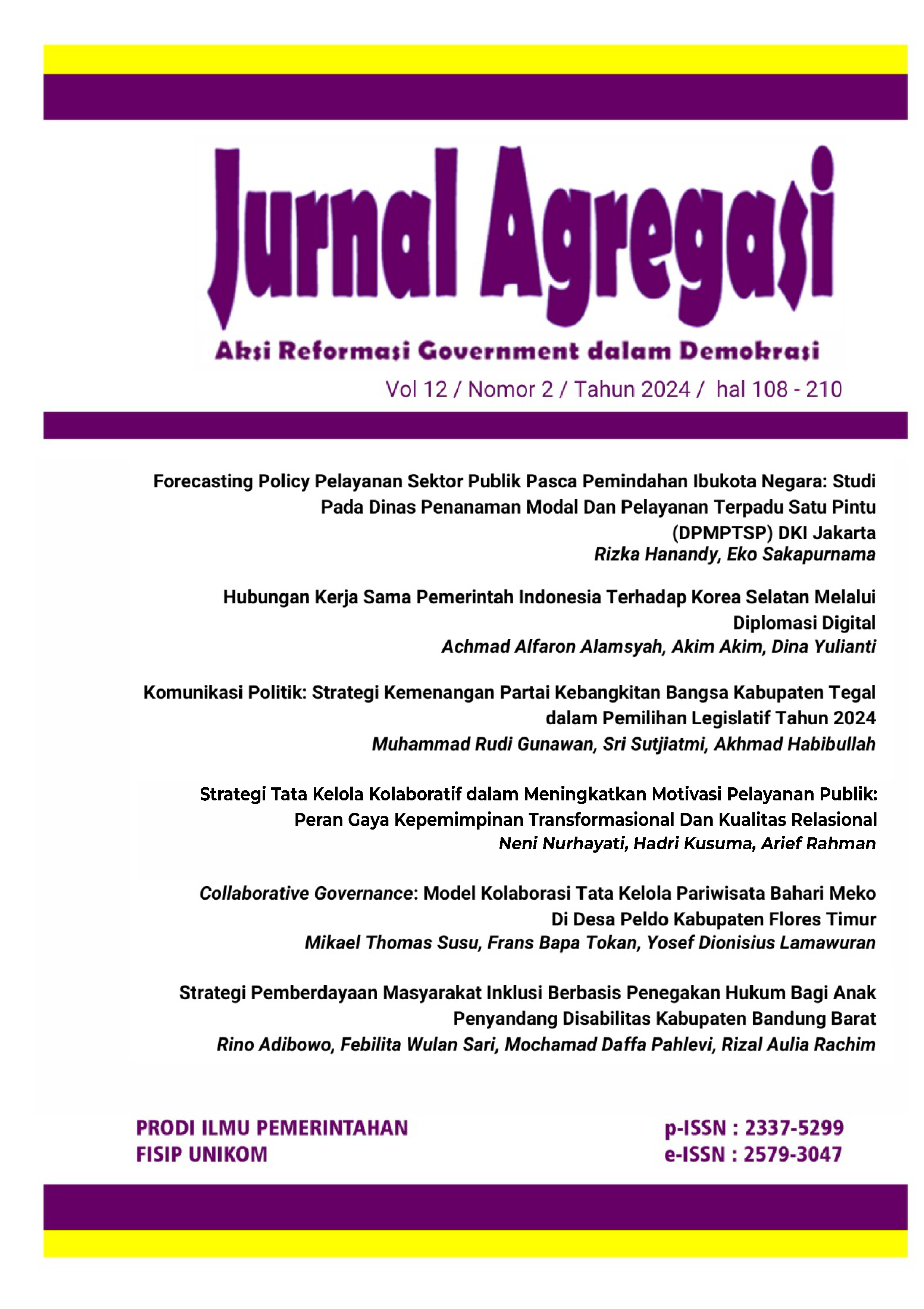Komunikasi Politik: Strategi Kemenangan Partai Kebangkitan Bangsa Kabupaten Tegal dalam Pemilihan Legislatif Tahun 2024
DOI:
https://doi.org/10.34010/agregasi.v12i2.14175Keywords:
Political Communication, Winning Strategy, Communication Planning Model, PKB, NU.Abstract
Political communication plays an important role in political contestation. Political parties must maximize political strategies through party machines run by legislative candidates and political parties. PKB is the incumbent party in Tegal Regency which has a political strategy mission to maintain the most votes and seats. The strong emotional relationship between Nahdliyin and PKB is the key to the success of the political battle. The purpose of this study is to explore the success of the PKB party in maintaining the majority of legislative seats in the DPRD during three election periods. This study uses a qualitative methodology by taking samples from elected DPRD members from the PKB Faction and the Chairperson of the PKB Branch Representative Council of Tegal Regency. Data collection was carried out through interviews with various sources, including PKB DPRD members, leaders of the Tegal Regency National Awakening Party, and related literature reviews. The results of the study revealed that the political communication strategy used by PKB party legislative candidates is in line with the Philih Lesly planning model, characterized by focused organizational activities and the community being the main target of activities.
Downloads
Downloads
Published
Issue
Section
License
This work is licensed under :

Creative Commons Attribution-NonCommercial 4.0 International License








